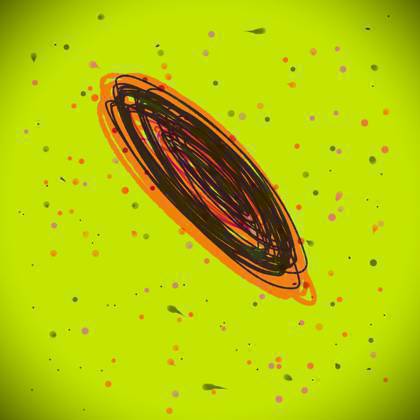

 Deepak Chopra, MD, FACP, FRCP
Deepak Chopra, MD, FACP, FRCP

The fact that every society remains divided over religion in the modern world means that the age-old question, “Does God exist?” remains in limbo. Paradoxically, the camp that needs God to exist and the opposite camp, that needs God to disappear, holds equal sway. But there is a way to solve the God paradox.
First, outrageous as this will sound to partisans on either side, the following propositions show the way to an answer.
1. God did not create the universe.
2. The Biblical story of creation in the Book of Genesis is wrong. Religious dogma in every culture is just as wrong.
3. Militant atheism is wrong.
I am not insisting on these points but offering them as a starting point, because we need a clean slate. If the word “wrong” bothers you, substitute “hasn’t worked out.” These statements can cause strong reactions, but this doesn’t matter right now. We are looking past personal opinions to reveal some underlying clarity.
In the modern secular world, atheism appears to have the upper hand. The notion of creating the universe in seven days can easily be ridiculed, and if someone insists that God is the Creator, the atheist position is simple: who created God? Here we begin to see a glimmer of an answer, because “Who created God?” poses an unavoidable issue.
Where did creation begin? This issue plagues not just religion but cosmology. If there is a universe filled with nearly infinite universes, where did the first one come from? Going backward, forward, or sideways into alternative universes doesn’t solve the issue of finding an actual source for creation.
Militant atheists, still championed by the last old-fashioned anti-religionist, Richard Dawkins, are working from an outmoded model as creaky as outmoded physics. Leaving aside sheer rhetoric (lumping all believers as superstitious, tracing religion to the primitive state of Stone Age societies, etc.), atheism cannot hold water until it acknowledges that physics has arrived at a new set of suppositions.
Chief among them is that the pre-created state is outside spacetime, and whatever is happening there, is acausal. The logic here is that whatever the pre-created state might be (superstrings, multiverse, dark matter and energy), it doesn’t obey the rules of cause-and-effect, and it exists outside the physical universe.
Therefore, the old-fashioned bedrock of atheism, which makes science the enemy of religion (or more crudely, reason the enemy of superstition) has collapsed. A causeless God outside space and time is nothing to ridicule. Something is causeless and outside space and time if it is to qualify as the cause of the universe. The arrival of quantum mechanics more than a century ago established that the quantum field doesn’t obey normal cause and effect. Instead, reality begins as a field of possibilities, and this field is causeless because every subatomic particle and every quantum event is entangled with every other. A fixed event in the physical universe is spontaneously created, like taking a ladle of quantum soup out of the infinite pot of quantum soup.
Without delving into the details, quantum mechanics reveals everyday things in our own world. In your daily life things are unpredictable, sometimes random-seeming, sometimes following a pattern. There are quantum leaps of thought, at the very least sudden insights or realizations, which interrupt the continuity of things. This kind of spontaneous, unpredictable, discontinuous setup is paralleled in the quantum world.
Now we have another glimmer of the answer to the God paradox. Different levels of reality are part of the same creative process. There is unity despite the appearance of randomness and diversity. In the Vedic tradition of India, this is pithily expressed in an aphorism: “As above, so below.” The truth of this is all around us. If you look at stars, galaxies, cells, organs, living systems, and human culture for the last 30,000 years, there is a deep link across the board.
This link consists of self-regulation, self-organization, and self-evolution. No outside mind or force is needed. In and of itself, the impulse to create leads to more and more complex forms. Each order or level of creation looks out for the next step in the chain.
In your brain, cellular chemistry looks out for the area of the brain it belongs to (the visual cortex, prefrontal lobe, amygdala, etc.), which in turn looks after the whole brain, which in turn regulates every other organ, with the ultimate aim of regulating and organizing the whole body.
Remarkably, this unified creative process began in embryos with stem cells. As each traveled to the region of the fetal brain, it was directed with exact precision to the area of the mature brain where it would reside for life.
At first blush this scheme defies logic. If the quantum world is spontaneous, unpredictable, and uncertain, and if the physical world is united with the quantum world, where did the creative, evolutionary impulse come from? In a word, what created creativity? This is the question that morphed out of “Who created the Creator?”
The answer that we have been striving for, it turns out, must contain contradictory qualities that beggar any kind of either/or logic.
The source of creation doesn’t need a creator.
The source is beyond thought and perception, yet it gives rise to all thoughts and perceptions.
The source is inconceivable yet gives rise to everything we conceive of, including science and mythology.
The source is transcendent in the most radical way—it is a realm of pure, infinite possibilities.
Taken all together, these aren’t head-spinning propositions that are circular and illogical. They are the answer to where the universe came from. The source of creation is pure awareness, nothing else. No other answer suffices. Leaving aside all religious and anti-religious opinions, all competing philosophies, even all worldviews, a single unbroken thread runs through human existence: consciousness. Looking at your own awareness, you will see into the mirror of cosmic awareness.
Your awareness is a field full of possibilities. It gels into thoughts and feelings constantly. You are motivated by using attention and intention, which gives you goals and desires. You are capable of creative activity, whether or not you take advantage of this. You know that you exist, which is the seed of self-awareness. Most important of all, none of the above had to be invented. They are aspects of one innate thing: consciousness itself.
It turns out that God doesn’t need to be accepted or rejected. By any name, the creator of the universe created it out of itself. God became the universe, if you want to put it that way. But if you strip it down to the nub, consciousness became the universe.
Everything that baffles our habit of either/or thinking is resolved once you adopt the perspective of wholeness. Like a richly fulfilling life, the cosmos is richly fulfilling because it does what it wants to do, following rules when it wants to, ignoring them on a spree of free thinking and behavior when rules feel too confining.
Fortunately for human existence, cosmic consciousness decided that it wanted to be loving, compassionate, blissful, creative, and evolutionary when it comes down to it.
All our detours into doubt, habit, conditioning, misbehavior, anger, revenge, and unnecessary suffering aren’t part of the basic setup. They are our creative impulses taking a perverse turn. The greatest gift bestowed on humans is the evolutionary impulse, and if other universes lack this gift, it would be better not to inhabit them.
*******
DEEPAK CHOPRA MD, FACP, FRCP, founder of The Chopra Foundation, a non-profit entity for research on well-being and humanitarianism, and Chopra Global, a whole health company at the intersection of science and spirituality, is a world-renowned pioneer in integrative medicine and personal transformation. Chopra is a Clinical Professor of Family Medicine and Public Health at the University of California, San Diego, and serves as a senior scientist with Gallup Organization. He is the author of over 90 books translated into over forty-three languages, including numerous New York Times bestsellers. His 91st book, Total Meditation: Practices in Living the Awakened Life explores and reinterprets the physical, mental, emotional, relational, and spiritual benefits that the practice of meditation can bring. For the last thirty years, Chopra has been at the forefront of the meditation revolution. His latest book, Living in the Light co-authored with Sarah Platt-Finger. TIME magazine has described Dr. Chopra as “one of the top 100 heroes and icons of the century.” www.deepakchopra.com
#God Paradox
#Deepak Chopra
#Consciousness and Creation
#Quantum Mechanics and God
#Unity of Science and Spirituality
#The Nature of Existence
#Wholeness and Creativity
#Spiritual Evolution
#Cosmic Consciousness
#Bridging Science and Religion